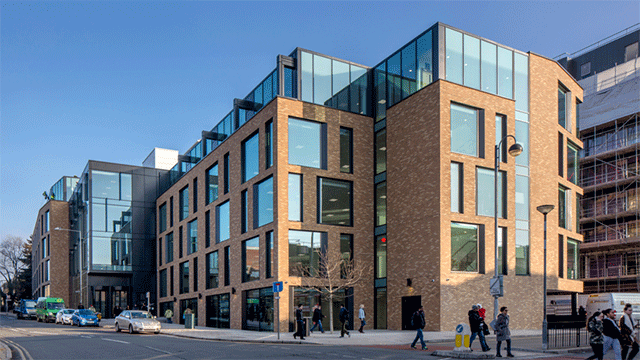Rugby Estates founder David Tye is making his return to the commercial property market as the chairman of a new long income focused REIT, which is planning a £220m IPO.
The Puma Long Income REIT will be managed by Puma Investment Management – part of the Shore Capital Group – and Landswood de Coy and target diversified long lease assets in the UK.
The REIT has already lined up a UK portfolio of long-lease commercial assets worth £360m, which it plans to buy immediately after listing. This will reduce any cash drag on performance after the IPO. The company will have target gearing of 40% and a dividend of 6%.
Tye will be joined on the board by Neil Sachdev who was chairman of Market Tech until June when it was taken private by its majority owner Teddy Sagi. Sachdev also spent seven years as Sainsbury’s property director and currently advises NHS Property Services as non-executive director.
Should the REIT raise its total target it will mean £1.3bn has been raised in nine REIT listings since the start of the year that have mainly focused on long income, alternative and residential assets (see below).
Puma REIT will be the fifth targeting long income through a commercial portfolio, with other specialist residential long-income vehicles also having listed, and joins an increasingly busy marketplace.
The LXI REIT, AEW Long Lease REIT and Supermarket Income REIT all failed to meet their IPO targets. Warehouse REIT announced its intention to float on 21 August but is yet to confirm the amount it has raised.
Companies targeting long-income intend to provide a bond-like return to investors and attract in money seeking higher returns than available from investing in the low-yielding bond market.
According to Stifel director Alan Carter, writing last month: “These vehicles are all within a pretty narrow target range in the sums they wish to raise. On that kind of scale, you rule out a lot of fund managers.
“The pool of buyers is quite narrow and a lot of people have been to the same investors over and over again.”
PRS and social housing focused REITs have fared better than those that are commercially focused, led by the launch of the Civitas Social Housing REIT at the end of 2016, the UK’s first, which raised £350m. The PRS REIT, launched by Sigma in May, was the first publicly traded company investing into UK PRS and raised £250m.
Akur Capital and Cantor Fitzgerald are joint financial advisors to Puma, while Cantor Fitzgerald and Shore Capital are joint bookrunners.
David Tye
Tye was chairman of Rugby Estates and its subsidiaries alongside chief executive Andrew Wilson. At its peak in 2006 the company had £650m of assets under management through its Rugby Asset Management arm, £98m of which it owned on its own balance sheet. In that year it launched a separate listed vehicle, Rugby REIT that was advised by Rugby Asset Management.
However the Rugby companies were heavily hit by the downturn.
In 2009 Rugby Asset Management was forced to sell the assets from one of its prized asset management mandates – eight properties in Covent Garden to Legal & General for £119.5m – when investors in owner ING Covent Garden LP wanted to pool cash.
Despite hunting for a £100m equity partner to exploit buying opportunities, by 2009 Rugby Estates reported a net loss of £15.8m. Between 2010 and 2014 the Rugby companies were wound down through major sales to ING UK Real Estate Income Trust and Lingfield Estates.
Since then, Tye has not been prominent in the property market, but according to Companies House he is still director of Cathedral Properties, Bolney Estates and Cockspur Estates.
Long income and alternative listings
Real estate listings this year have been dominated by secure income and alternative strategies, although most have failed to hit the targets they have set out.
To send feedback, e-mail alex.peace@egi.co.uk or tweet @egalexpeace or @estatesgazette










